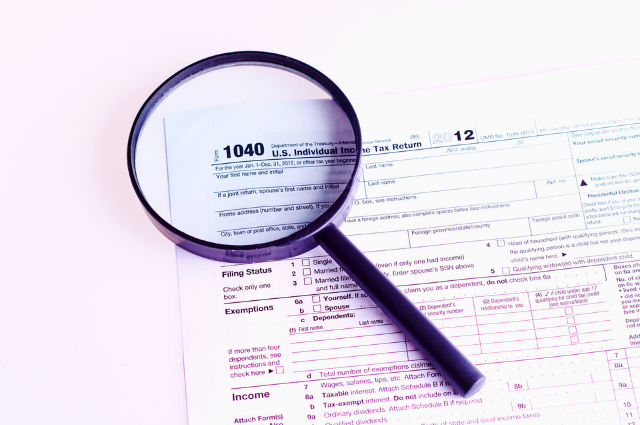As compared to all the different types of borrowers, the Self-Employed borrowers stand different because of their different nature of income earnings. Not all banks, lending institutions or private lenders are very keen on lending loans to self-employed borrowers, and the biggest reason behind this is their fluctuating nature of earnings which prevents these institutions lay trust on self-employed borrowers.
Does that mean it’s challenging for self-employed borrowers to raise a loan? Well, difficult yes. Impossible? No. Stated income loans are the most significant rescue for self-employed borrowers and can help a great deal in financing the deals of self-employed borrowers. So, if you are a self-employed borrower, here’s everything you need to know about stated income loans and how they can help you in financing your deals or investments. Read on!
What are the stated income loans?
Covering up the basics first – What are Stated Income loans? Stated income loans in its traditional sense are the loans that were issued, as the name suggests, based on the ‘Stated Income’ of the loan borrower. However, unfortunately, these types of loans caused great havoc in the entire economy and was in a way responsible for the 2008 Housing market crash, after which the banks stopped providing such loans based on the “stated income” of the borrower.
In today’s sense, therefore, stated income loans are the loans that are provided on the basis of the credit score and credit-worthiness of the borrower over the stated Income. Thus, you will no longer need proof of verified stated income reports or huge documentation to apply for a stated income loan. You’d instead need a good credit score to obtain a stated income loan.
What are the cases where stated income loans make the most sense?
• When you’re a self-employed borrower, here are some scenarios where opting for a stated income loan makes the most sense.
• When you do not wish to shell out all the cash that is needed to finance a particular deal and want to opt out for a loan instead, so you have some of your savings with you in cases of emergency or even just in general, as a measure of basic survival security.
• When you’re planning to flip a particular property from your portfolio to sell but need some immediate cash financing to renovate the building and increase the chances of a great sale transaction.
• When you have a significant cash advance that is coming your way in the future, but you cannot pass out on a particular type of investment or property
These are some of the typical cases where it makes the best sense for you to avail commercial stated income loans.
What are the things needed for you as a self-employed borrower to avail a stated income loan?
Before we talk about the things that are needed for you as a self-employed borrower to avail a stated income commercial real estate loan, here’s an overview of how the scenario would be different for employed borrowers. So, employed borrowers would be typically needed to provide the documentation of their W-2 Forms, tax returns, and some recent pay stubs to qualify for a typical mortgage loan. However, for you, as a self-employed borrower, you’ll be expected to submit a little more documents as your income flows are irregular or inconsistent, and that leaves the lenders at the higher risk stage. Here are the things you will need as a self-employed borrower to avail commercial stated income loans.
Number 1 – Huge amount in savings or reserves
Since the Income of self-employed borrowers vary and are inconsistent, the lenders usually require the borrowers to have a huge amount of savings in their bank accounts. This assures them that they are covered and they won’t run into losses even at times, the borrowers’ monthly Income has taken a beating. So, if you’re a self-employed professional looking out for a loan, you need to ensure that you have a considerable amount of savings in your bank account.
Number 2 – Huge down payments
The down payments for employed borrowers will be much lesser than the down payments a self-employed borrower would have to make. Again, the biggest reason behind this is the insecurity of the lenders with their money with you owing to the inconsistent income pattern that you may have. The down payments vary from one lender to another, and one lending institution to another. You might want to do your homework on the best of the best lenders out there to land upon a great deal. There are plenty of stated income commercial lenders out there and making a wise pick among the various choices that are laid out in front of you will surely require a fair amount of research to develop sufficient knowledge about what you’re getting into.
Number 3 – High credit score
A High credit score is one of the prime requirements for availing commercial stated income loans. If you don’t have a remarkable credit score, it is almost impossible for you to get your hands on an excellent stated income loan. There are some ways through which you can, however, increased your credit score and then apply for these loans later. So, ensure that you have an attractive credit score before you apply for a stated income loan. Typically, you will be required to have a credit score of anything above 900 to qualify for stated income commercial real estate loan.
On the other hand, also remember the overall credit-worthiness of the borrowers is also considered while processing the loan request for providing stated income commercial real estate loans. So, even in cases where the credit score of the borrower is not up to the mark, you can always try getting into a conversation with your lender and convince them of your credit-worthiness.
This might require you to build a strong rapport with the borrower, demonstrate them about your earning abilities through showing your recent earnings, demonstrate to them on why they can count on you with respect to paying back your dues, and finally demonstrate to them on how important this deal is for you and how solid is your plan of getting this deal executed by making the highest returns.
Using this approach of building a good rapport with the potential stated income commercial lenders and building up your credit worthiness therefore might not be the most commonly approached method or the most mainstream one, but it is definitely worth a try as you’ll never know how lenders will respond and to your surprise, you might strike a great deal with any one of those stated income commercial lenders.
So, please do not close the doors on yourself unless they totally have! This approach is instead an unconventional way of getting your hands on stated income loans, but you should try it when you’re turned down by some of the lenders. The fact of the matter here is that all that is stopping lenders from lending you your loan is that they cannot trust you with the loan repayments on time due to the nature of your work.
This right here is their biggest hurdle that’s stopping them from providing you a loan. If you can do anything to remove this hurdle, and somehow manage to convince your lender that you will be paying up on time and prove your credit-worthiness to them, then there’s nothing like it, and most importantly, there’s nothing wrong about it.
Number 4 – High level of Income
The next necessary requisite for you to avail a commercial stated income loan is a high level of Income. As it is, it is apparent that self-employed borrowers do not have a fixed cash flow every month. Thus, the lenders expect the borrowers to have a high level of Income – meaning the services provided by the self-employed borrower or in general the business conducted by the borrower should be of a nature that promises a high level of Income.
When it comes to a high level of Income, you need to note that sometimes lenders turn down the loan request of self-employed borrowers even when the savings are huge because lenders are more keen on knowing your repaying abilities than your old savings. So, if you’re into a business that does not promise a high level of Income, it is very challenging for you to avail a stated income loan.
Number 5 – Bank statements of the borrower
Lastly, lenders will need your bank statements to believe that you have a regular income stream, if not consistent. The bank statements pertaining to the period of the last 3 to 4 months is what is typically needed to be submitted with the lenders. Again, your bank statements aren’t really of primary importance as lenders are more interested in the savings you have made till date and your overall credit score and credit-worthiness that you display while negotiating the deal.





